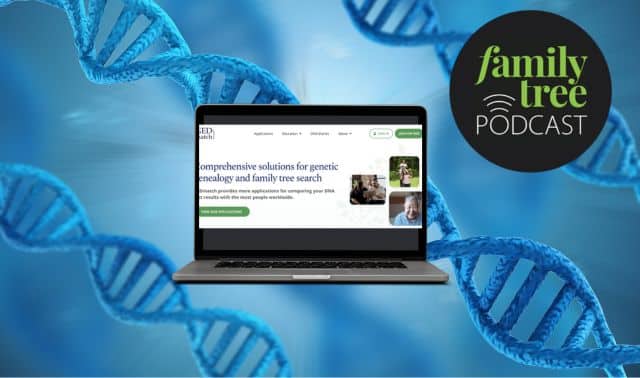Sign up for the Family Tree Newsletter Plus, you’ll receive our 10 Essential Genealogy Research Forms PDF as a special thank you!
Get Your Free Genealogy Forms
"*" indicates required fields
Understanding the history of laws your ancestors obeyed (or disobeyed) may help you understand old court records, explain whether or where you should look for pension or divorce records during a particular time period, or reveal why your immigrant great-grandmother doesn’t show up in naturalization records despite her assertion in federal censuses that she was a citizen.

Use the following websites—and other related resources mentioned under each one—to better understand and research historical federal and state laws. All are free to use, most from home (we note where resources require a visit to a county or university law library).
1. American Legal History Online Sources
This site is packed with links to colonial, territorial, state and federal
government documents. The left-side menu points to web pages on federal legislative, executive and judicial history. Under the Secondary Sources & Finding Aids tab, find links to research databases and archival manuscript finding tools. Those researching American Indian roots should explore the Native Americans Nations link.
On the right is a valuable Ask a Law Librarian service. Click Send Email to submit short, specific legal history questions relevant to your research. For example, if you suspect an ancestor lied about his age on his WWII draft registration to qualify or disqualify himself, you might ask, “What age range was subject to the draft during World War II?”
2. Black’s Law Dictionary
A legal term can seem like a foreign language (sometimes it is one), and that’s before you try to understand its historical meaning. Here, you can browse or search the 1910 edition of Black’s Law Dictionary for more than 15,000 legal terms, including hundreds of Latin words or phrases. A mobile version that allows offline use is available via the Black’s Law Dictionary app at Google Play and iTunes.
What about older law dictionaries? The 1891 edition of Black’s is searchable for free at HathiTrust Digital Library, and you can purchase an 1856 edition of Bouvier’s Law Dictionary for your Kindle. The Georgetown University Law Library has an online collection of old legal dictionaries (click Law-Dictionaries under Topics and Subjects).
3. A Century of Lawmaking for a New Nation
This Library of Congress portal leads you to digitized records from the Continental Congress and the US Congress (up to 1875). Most are text-searchable, allowing you to look up topics pertaining to your ancestor, from military pensions to homestead land to immigration law.
From the home page, click Search All Titles. Experiment with search term combinations and parameters. Within search results, watch for terms or phrases you should search with, such as “female suffrage” instead of “women’s voting rights.” Sort search results by date to see how laws changed over time. Click Using the Collections for more tips for navigating the site.
Find helpful coaching on navigating federal legislative documents at the University of Michigan Law Library’s US Legislative Materials and History website. It walks you step-by-step through the documentary process, defines key concepts and tells you how to find the materials you want. You also may appreciate tips and links at the Library of Congress’ Guide to Law Online. One more tip: for recent federal legislative activity, go to the Congress’ website.
4. HeinOnline
Legal Genealogist Judy G. Russell has called HeinOnline “the best online resource that exists for historical statutory research.” Run full-text searches of more than 130 million pages of original and secondary sources, including US statutes, Supreme Court reports, federal and state case law, and articles from more than 2,200 law journals. Results are image-based and downloadable.
Although the full HeinOnline site is available only at participating law libraries, two collections of genealogical interest are free to home users: Slavery in America and the World covers slavery-related statutes, cases and publications, and HeinOnline’s massive collection of US legal materials is accessible through the aforementioned Library of Congress’ Guide to Law Online. (You can purchase short-term, from-home access to other individual HeinOnline databases starting around $19.95 for 24 hours.)
5. LexisNexis
This legal research database is accessible only in law libraries, but it’s worth a special trip. LexisNexis offers full-text searching of US Supreme Court decisions since 1790, as well as federal and state statutes and cases.
6. National Archives and Records Administration
The National Archives website is your go-to resource for learning about and ordering federal records. There’s a lot to see and do here, and it’s easy to lose focus. Target your exploration by clicking Research Your Ancestry.
From this page, you can read up on—and learn how to access or order—genealogical records at the National Archives. Click on categories such as Census Records, Military Service Records, Immigration Records and Naturalization Records. More Topics leads to links for African-American Research, Federal Employees, Land Records, Prison Records and more.
Next, browse the Research a Specific Topic page, clickable from the Research home page listed above. You’ll see an expanded list of topics to explore such as Cities and States or Exploration and Westward Expansion. Before leaving this site, check out Prologue magazine’s Genealogy Notes section.
7. Westlaw
Westlaw, also available only in participating law libraries, provides tools to help you explore primary and secondary legal resources, search public records for living relatives and get quick answers to common legal questions.
8. Women, Enterprise and Society
The Harvard Business School put together this website about historical laws and practices relating to women’s lives. Themes include employment, marriage, financial guardianships, poor laws and slavery.

Summaries for each collection provide fantastic overviews of issues you may not have realized affected your great-great-grandmothers. From the home page, click Collections and select a title to read its summary and view historical document images. Look for subcategories such as Factory Labor: Textiles (under Women at Work: Manual Labor) or Living in Poverty (under Women and the Law).
Try the searchable index of manuscript collections, but note that these collections aren’t comprehensive for any one place or time period. You’re more likely to find cases and topics similar to your ancestor’s situation, rather than documents that mention her.
Another Harvard website, Studies in Scarlet, has digitized images from more than 400 US and UK published trial narratives. Topics encompass “domestic violence, bigamy, seduction, breach of promise to marry, and the custody of children, as well as trials for murder and rape.” Again, this collection isn’t comprehensive, but can help you understand how laws and attitudes influenced women’s lives.
ADVERTISEMENT




